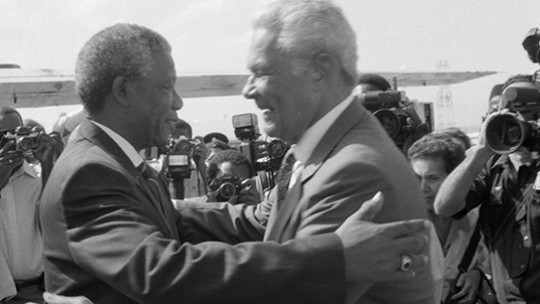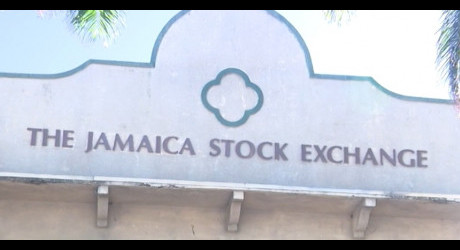.png)
The iconic photograph of America's current President, Barrack Obama, shaking hads with Cuba's Raul Castro at the memorial service for anti-apartheid hero Nelson Mandela in South Africa on Tuesday, December 10, 2013, evoked reminders of half-a-century of enmity between America and Cuba, and raised hopes of a further thawing of those relations.
It also brought back recollections of Cuba's role in sending troops to Angola during the 1970s, much to the disapproval of the United States, and Jamaica's support, under Prime Minister Michael Manley, for the Cuban action.
Manley argued strongly in support of Cuban military intervention in the Angolan conflict because he saw that as a necessary move to block the further advance of the influence of the apartheid regime in South Africa on the African continent.
In a 1996 interview, Manley, reflecting on that uneasy passage of history, including his encounters with then American Secretary of State, Henry Kissinger.
"Angola was important for South Africa because if they could have conquered it they would have completely undermined the Frontline States and the Frontline States were of course the base which the ANC had to use in the internal struggle against apartheid and was also the base that SWAPO (South West Africa People's Organisation) had to use for what is now Namibia."
The South African strategic plan was quite clear, according to Manley: "They had already destroyed Mozanbique by destabilising the Somora Machel Regime, whipping up tribal conflict and stuff like that. If they could have completed the process in Angola they would have had the two wings intact to roll up everything from Botswana, Tanzania, Zambia, Zimbabwe etc... They would have pushed the strategic border of South Africa nearly one thousand miles to the north and they would also have had access to oil and many other things."
Cuba was the only country "with a chance to rescue Angola from the South Africa army when it launched out from Namibia to attack Angola", Manley asserted, describing the Caribbean nation's intervention in Angola as "one of the bravest decisions of history."
As Prime Minister, Michael Manley sought to explain the Jamaican position to Henry Kissinger, who wanted Jamaica to support the American position in opposition to the Cuban intervention at the United Nations.
"I tried my best to explain this to Kissinger. I said, look, if we have to support Cuba here it is nothing anti-American, it hasn't a trace of anything to do with your politics and your interest; we are in the anti-apartheid struggle."
Nevertheless, Mr. Manley claimed, in his book" Struggle in the Periphery" that the American government punished Jamaica by withholding a line of credit that was being negotiated at the time and further, that it fomented activities to undermine the stability of the country for a period.
Michael Manley served as Prime Minister of Jamaica from March 1972 to October 1980 and from February 1989 to March 1992. He died in March 1997.







 All feeds
All feeds







